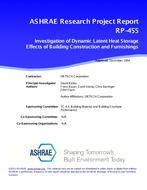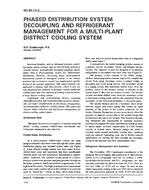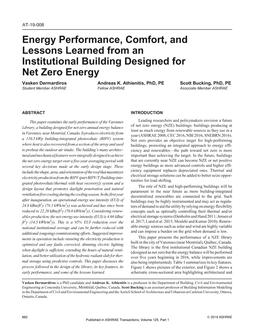One of the best criteria for judging how safe a compartment will be in a fire is the rate at which a hazardous situation will develop. The time available after the fire’s initiation for the escape or removal of occupants and the time for extinguishment before the fire is fully developed or spreads to adjoining spaces is an important parameter describing life safety.
For a given compartment, i.e., walls, floor, ceiling, and included openings, the rate at which hazardous conditions develop is dependent on interior finishes and furnishings present in the compartment and their spatial relationships. The purpose of the model is described in this paper (1) to predict the effect that those materials and products in the compartment will have on the total fire system in terms of hazard development rate and (2) to compare alternate materials and their effect on the fire system. The model was not designed to give a rigorous description of a fire system, but to compare the effect that different loading and construction features will have on the development of a fire.
A model is needed to evaluate rate of hazard development. For a given “loading” it would be difficult if not impossible to estimate which hazard; heat, smoke, or toxic gas, will reach critical levels first, not only in the compartment but in surrounding compartments and passageways. This information is needed to determine which type of material should be limited or substituted to give a safer fire system.
Product Details
- Published:
- 1975
- Number of Pages:
- 13
- File Size:
- 1 file , 780 KB
- Product Code(s):
- D-AC-75-02-1
- Note:
- This product is unavailable in Russia, Belarus


